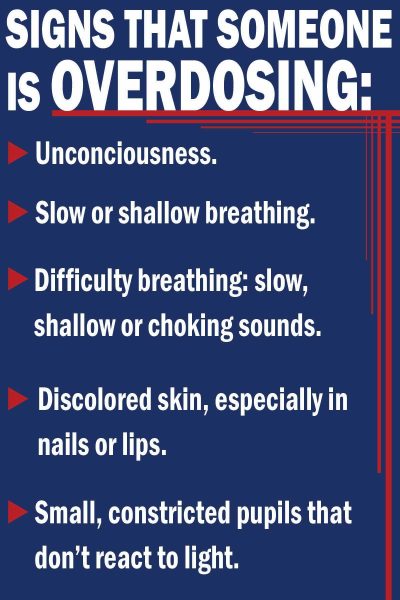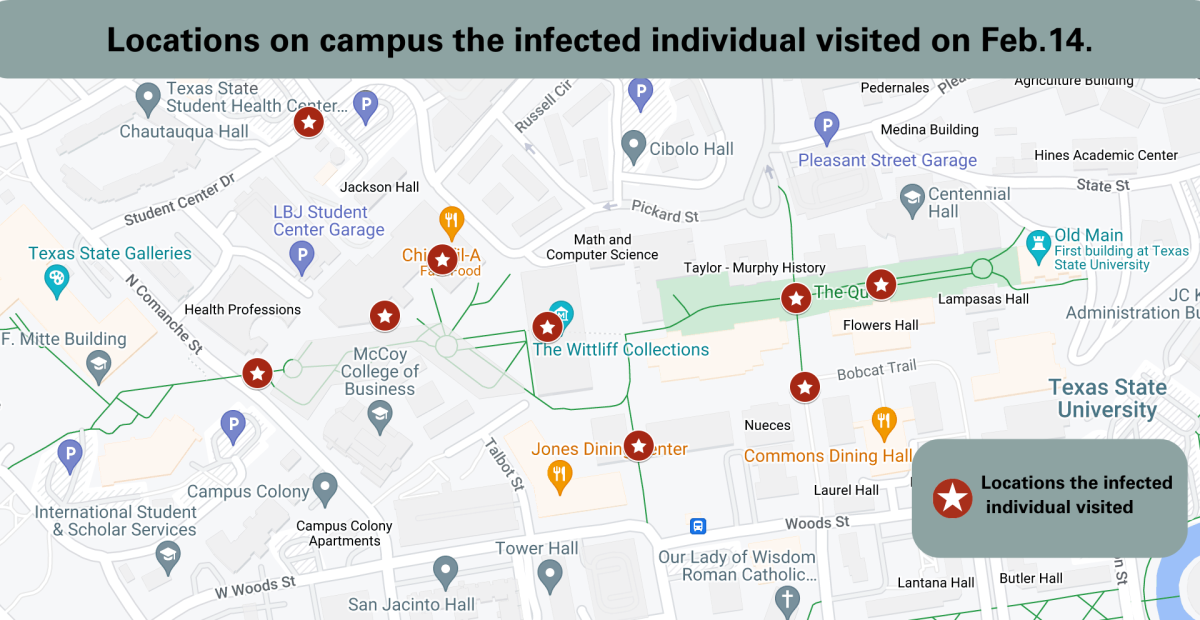Driven, well-spoken and loyal are only some of the words Angela and Gavin Wright used to describe their 18-year-old son Matthew Wright who died from fentanyl poisoning on May 2, 2024.
Texas State welcomed 8,182 new freshmen this fall, making it the largest freshman class in university history, however Matthew is one student absent amongst the class of 2028. The youngest of three boys, he had just been accepted into Texas State University when he unexpectedly died from taking counterfeit pills laced with fentanyl.
He planned to pursue a degree in psychology to advocate for mental health and help others who were struggling.
“From the moment we were visiting the campus he said, ‘oh this is definitely more my vibe and they gave me a bigger scholarship’,” Angela said. “He was really looking forward to it and we were excited for him.”
Matthew grew up in Cedar Park with his older brothers, Nathan and Sean, who shared what Gavin and Angela described as a typical, spirited sibling rivalry.
“I am also the youngest of three, so I bonded with him on that and you could see there were definitely times he would show off trying to impress his brothers,” Gavin said. “You could see he was definitely trying to make them proud and they were.”
Angela said throughout high school Matthew was a dedicated student; always focused on his studies, cross country and, like his older brother, his high school’s marching band, where he played the saxophone. Gavin said Matthew was a determined kid who, regardless of how challenging a task appeared, always pushed to complete it.
“We had people in a cross country meet that were asking us how on earth he keeps all this up and this is not anything we’ve driven him to do, he just wanted to do it,” Gavin said.
Angela recalled how effortlessly Matthew could engage in deep conversations and always made sure to share a laugh with friends and family. However, as time passed, Matthew’s mental health interrupted his drive for self-improvement.
The Wrights said Matthew struggled with mental health issues for years, specifically anxiety, depression and obsessive-compulsive disorder, often being hard on himself for not reaching his desired improvement and living from one hyperfixation to the next.
“He started to have more anxiety and depression and started to feel like maybe he was doing too many things,” Angela said. “Then he quit band and then the following year he quit running so he just started to feel like it was all too much.”
Yet, it was his own experience with mental health that lit his spark for mental health advocacy, driving Matthew to pursue a career in the field—a path he had envisioned beginning within the halls of Texas State.
“He was very interested in how the brain worked and what causes these mental health issues,” Angela said. “All the experience and therapy he had, he hoped to use and help people in the future.”

Matthew was one of 2,644 people who died from fentanyl poisoning from 2023-24 in Texas, according to the Texas Department of State Health Services.
Cedar Park Police Detective Sean Fallon said since 2020, the city of Cedar Park has documented a spike in fentanyl overdose cases among people who are 16 to 24 years old.
“Matthew’s case was one of the quicker cases where we were able to establish a timeline and a suspect– almost three months from when Matthew overdosed to when we had a suspect in custody,” Fallon said.
From Cedar Park to Texas State, community support has helped the Wrights slowly begin healing throughout the past months.
“We were surprised by three different letters and found it very meaningful that President [Kelly] Damphousse and Dean [Mary] Brennan of the College of Liberal Arts wrote us personal messages of condolence,” Angela said.
Texas Against Fentanyl (TxAF), a nonprofit fentanyl awareness organization helped the Wrights share Matthew’s story and allowed them to connect with other families who have dealt with a similar loss.
Stefanie Turner, founder and president of TxAF, said after losing her 19-year-old son to fentanyl poisoning on Sept. 23, 2021 she created the organization to spread awareness about the dangers behind fentanyl-laced pills and help families who are grieving.
“We really try to be sensitive in supporting families where they are and Matthew’s family wanted to become an advocate and we’re helping them to be able to do that,” Turner said. “It’s a way to repurpose your pain and it helps to heal people.”
TxAF held an awareness panel in honor of Matthew back in June at City Reach Church. In the panel, members of TxAF, also known as angel families, shared their experiences with losing a loved one to the fentanyl epidemic.
“Talk about bravery and leading with their heart, [the Wright family] were willing to share such a personal story to save others,” Turner said.
Gavin said he believes kids are most vulnerable to the fentanyl crisis because they are often unknowingly sold laced drugs by their own peers, like in Matthew’s case.
Fallon said the dosage unit of fentanyl that causes lethal effects is 2 mg that equates to 3 g of salt, making fentanyl 50 times more powerful than heroin and 100 times stronger than morphine.
Though the fight against the fentanyl crisis continues, Hays County—one of the hardest-hit areas among students—has seen a decrease in fentanyl-related deaths. The efforts to combat the issue have spread all throughout Texas, making its way to university grounds.
Texas State announced the Naloxone (Narcan) Distribution Program on Feb. 1, 2024, which provides students, faculty and staff access to free Narcan at selective locations in the San Marcos and Round Rock campuses.
In 2023, TxAF helped pass House Bill 3908 titled Tucker’s Law, which requires public schools to bring in fentanyl abuse prevention education and drug poisoning awareness.
Now, by sharing Matthew’s story, the Wrights hope to spread awareness of the fentanyl issue and help others who need it most, just like Matthew dreamed of doing.
“In a sad way, Matt will still help people, just in a different way now,” Angela said.




















